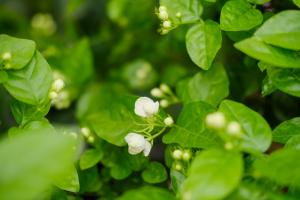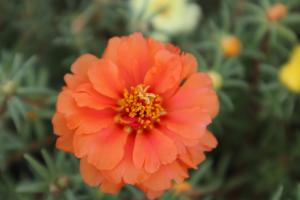Introduction
Water pollution is a major environmental issue that affects all living organisms. Plants, which are the primary producers in an ecosystem, play a crucial role in maintaining the balance of the environment. However, excessive amounts of pollutants in water can cause serious harm to the plant life cycle. In this article, we will discuss how water pollution affects a plant's life cycle, and the ways in which we can prevent or mitigate these effects.
Impact on Seed Germination
Water pollution can have a detrimental impact on the germination process of seeds. Chemical pollutants, such as heavy metals or pesticides, can cause damage to the seed by interfering with its molecular structure. As a result, the seed's ability to absorb nutrients and water may be affected, preventing it from developing properly. This can lead to lower rates of seed germination, or worse, complete failure of the germination process.
Effect on Plant Growth
Once a seed has successfully germinated, water pollution can continue to pose a threat. Pollutants in the water can reduce the amount of nutrients that a plant can absorb, leading to stunted growth or underdeveloped root systems. This can make the plant more vulnerable to diseases and pests, which can further hamper growth. Additionally, some chemicals can cause physical damage to the plant, such as leaf discoloration or distortion.
Impact on Reproduction
Contaminated water can also affect a plant's ability to reproduce. Pollutants can reduce the quantity and quality of pollen produced by a plant's flowers, leading to reduced pollination rates. This can result in fewer fruits or seeds being produced, which can impact the survival of the plant and other organisms that depend on it. In extreme cases, water pollution can even cause the death of a plant before it is able to complete its reproductive cycle.
Effect on Ecosystems
The impact of water pollution on plant life cycle can have far-reaching consequences beyond individual plants. As mentioned earlier, plants are the primary producers in an ecosystem, which means that any harm to them can affect the entire food web. Lower rates of plant growth and reproduction can lead to reduced amounts of food and habitat for other organisms. This can cause a ripple effect throughout the ecosystem, potentially leading to changes in population size and even the extinction of some species.
Prevention and Mitigation
Fortunately, there are ways to prevent or minimize the effects of water pollution on plant life cycle. One of the most effective methods is to reduce the amount of pollutants entering the water in the first place. This can be done by implementing stricter regulations on industrial waste disposal, using eco-friendly agricultural practices, and properly disposing of household chemicals. Additionally, planting vegetation around bodies of water can help to filter pollutants from the water and prevent erosion, which can also improve water quality.
Conclusion
In conclusion, water pollution can have serious consequences for a plant's life cycle, as well as the ecosystems in which they live. However, by taking steps to reduce pollution and promote healthy plant growth, we can help to protect the environment and ensure that plants continue to play their vital role in our ecosystem.

 how many times do yo...
how many times do yo... how many planted tre...
how many planted tre... how many pine trees ...
how many pine trees ... how many pecan trees...
how many pecan trees... how many plants comp...
how many plants comp... how many plants can ...
how many plants can ... how many plants and ...
how many plants and ... how many pepper plan...
how many pepper plan...































